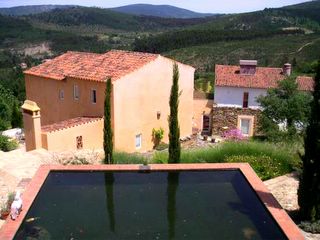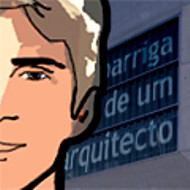I've never been to Portugal, so my prejudices about the salty Iberian appendix are unsullied and uncorrupted by acquaintance. It is with a disinterested authority, therefore, that I can say Portugal is Belgium for golfers, a place so forgettable that the rest of us haven't even bothered to think up a rude nickname for it. Portugal is Britain's oldest ally - like that keen exchange student your mother forced you to be nice to, and who turned up in paperweight glasses and national costume. It's also the only colonial power that was given independence by its own colony. Brazil told Lisbon it would just have to stand on its own two feet now, because, frankly, being seen out with it was getting embarrassing. Portugal's colonial reputation was for being overfamiliar with the folk they were ripping off. In fact, there is a theory that the Portuguese only got an empire as a desperate attempt to get laid.
The world is dotted with plain mates on double dates, countries that are gawkier, hairier, shyer, goofier and less entertaining than their friends. Their main purpose is to make the next-door neighbour look good. Obviously, there's Canada, which is the ugly friend of America. New Zealand is the dingo date for Australia. Ulster is the foul-gobbed psycho with a neck tattoo out with lyrical, literate, craicing Eire. But how depressing must it be to be the forgettable one out on a date with Spain? It's a Ladyshave assault course.
Portugal has been doomed to be the mini-me España. It's Spain that's famous for sailors and discoverers, when, in fact, the Portuguese were better and braver at it. Spain got fascism and Franco; Portugal just got some bloke called Salazar, but nobody noticed. Spain got bullfights, flamenco, Penélope Cruz and Real Madrid; Portugal got golf courses, porto, gout and domestic servants. Name three famous Portuguese who weren't sailors. Or three of your favourite Portuguese dishes. Okay, so there's bacalao (salt cod), those little custard tarts and, erm, another one of those delicious little custard tarts.
One of the problems with the communal, back-slapping, one-for-all-and-all-for-France Europe is the rock-on relativism (by the way, Portugal is in the EU, isn't it?). We're all supposed to be uniformly good and nice and attractive. We're supposed to believe that everyone's sense of style is equal, that their pop songs are jointly joyous and that everyone's domestic cookery is equally, salivatingly moreish. So in EU-topia, the food of Greece is as wonderful as Italy's, although there's always the proviso that it has to be really, really well made. How many people do you think there are who can make Greek food taste good? Very few. And they're all Turks.
In gallant little Portugal, the food is well meaning and pretty dreadful. And before you say anything, no, I've never had it well made, because I've never found anyone who can be bothered to make it. Salt cod, of course, can be fantastic, but one swallow doesn't make a cuisine. Then there are all those things made with chickpeas. The Portuguese are very fond of pulses, bobbing like buoys in soups of old fatty fat.
I'm sure if you're born to it, it reminds you of your grandmother's beard and your mother's mop bucket. Portuguese food is heaven - if you're Portuguese. But if you come to it with a mild hunger and a choice, it's just sort of Spanish, but without the shrieking. Dinner of the Dons always seems as if it's therapy to cope with the sensory, religious and emotional overload of being Spanish. Portuguese food, on the other hand, is more your necessary ballast and seasick ammunition for discovering Tierra del Fuego - or being the live-in couple for a rock star in Sussex.
[...]
Tugga is going to have a hard time competing with its pounding, tequila-slamming, chip-and-dip, youth-ogling, short-skirted neighbours. But then, for Portugal, that's a familiar story.

![[quote_____:THAT]](http://static.flickr.com/139/317847903_a7670eed73_b.jpg)

























![[quote_____:THAT]](http://static.flickr.com/101/254194522_4ee4c6e656_o.jpg)